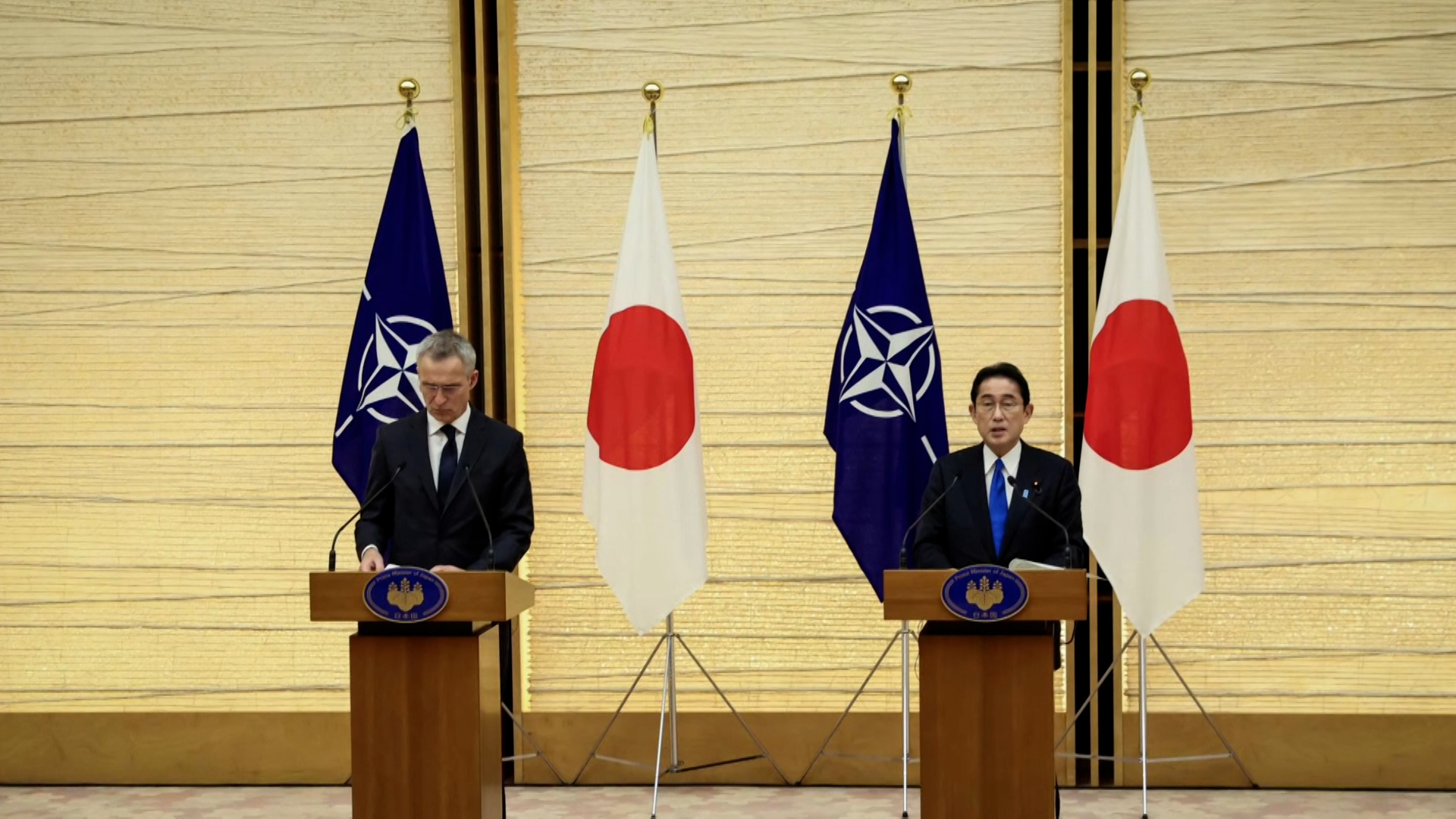Despite Japan's denial of any plans to join NATO, China has made no secret of its growing apprehension about the growing rapprochement between the alliance and Tokyo. So what does Beijing fear? What are NATO's motives for opening a liaison office in Japan?
Japanese Prime Minister Fumio Kishida confirmed that his country does not plan to become a member of NATO, but acknowledged that the alliance plans to open a liaison office in Japan. According to the Japanese ambassador to the United States, the task of the prospective office will be to facilitate consultations in the region. The Chinese Foreign Ministry said the move was of concern to the international community and the countries of the region.
On the purpose of this step, Junishi Takase, a professor of political science at Nagoya University of International Studies, pointed out in his interview with the program "Beyond the News" (2023/5/24) that Japan has relations and ties with NATO countries, but it is not a partner and will not join it.
He explained that the office in Tokyo aims to cooperate with NATO in its capacity as Chairman of the Group of Seven, and seeks to establish security and peace in the Pacific region, which serves Japan's interests as long as it is a matter of political ties only and does not extend to a military level.
He also stressed that the mission of the office will be limited to communication, and will not be a place to coordinate any military activities at all, as it aims to have normal relations with NATO countries, expressing surprise at China's objection as long as the matter does not exceed the limits of a liaison office and is not related to destabilizing the region as Beijing claims.
What is China afraid of?
As for Beijing, plans to open a NATO liaison office in Tokyo raise questions about the alliance's intention. The Chinese Foreign Ministry, through its spokesman, considered that NATO's orientations in the region constitute interference in regional affairs in a way that provokes a confrontation between the existing blocs in it.
In this context, Ding Long, professor of international relations at the University of International Studies in Shanghai, considered that NATO seeks to expand its influence in Asia, thus turning the alliance into a global and international institution instead of its European nature mainly, and did not rule out that Japan will become in the distant future an official member of NATO, especially in the absence of good justifications for this rapprochement other than targeting China and trying to prevent its influence.
He pointed out that China will respond decisively and strongly to any dangerous moves that may occur between NATO and Japan, and that Beijing will work to build a military arsenal through which it will be able to repel threats imposed on it by Tokyo and NATO, and will take "retaliatory" political measures against any hostile moves against it.
In response to Chinese concerns, Jim Townes, former US Assistant Secretary of Defense for Europe and NATO Affairs, explained that it is customary for NATO to have points of contact in other capitals, as if the alliance wants to deepen understanding and achieve better coordination between countries, it establishes such offices, it looks forward to some aspects of tension in the Indo-Pacific, and thus the office will help to better coordinate positions and understanding with the government and people in Japan, which will promote stability in the region contrary to expectations Beijing.

